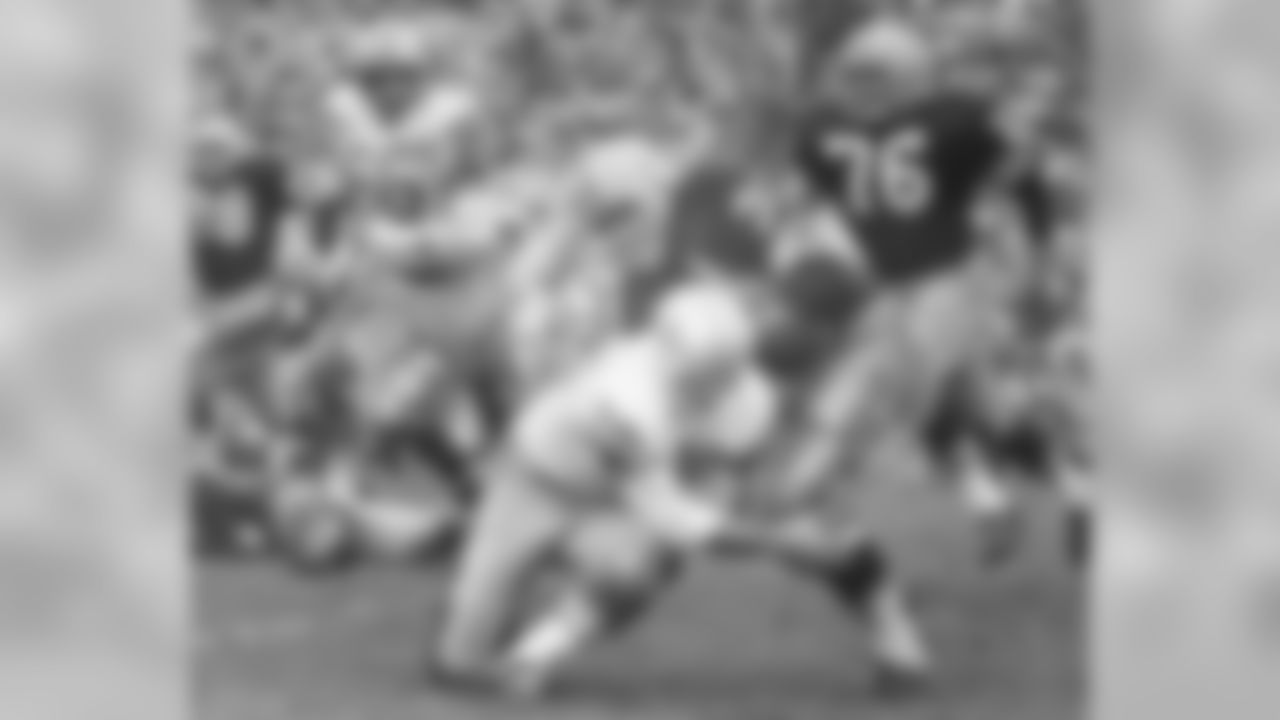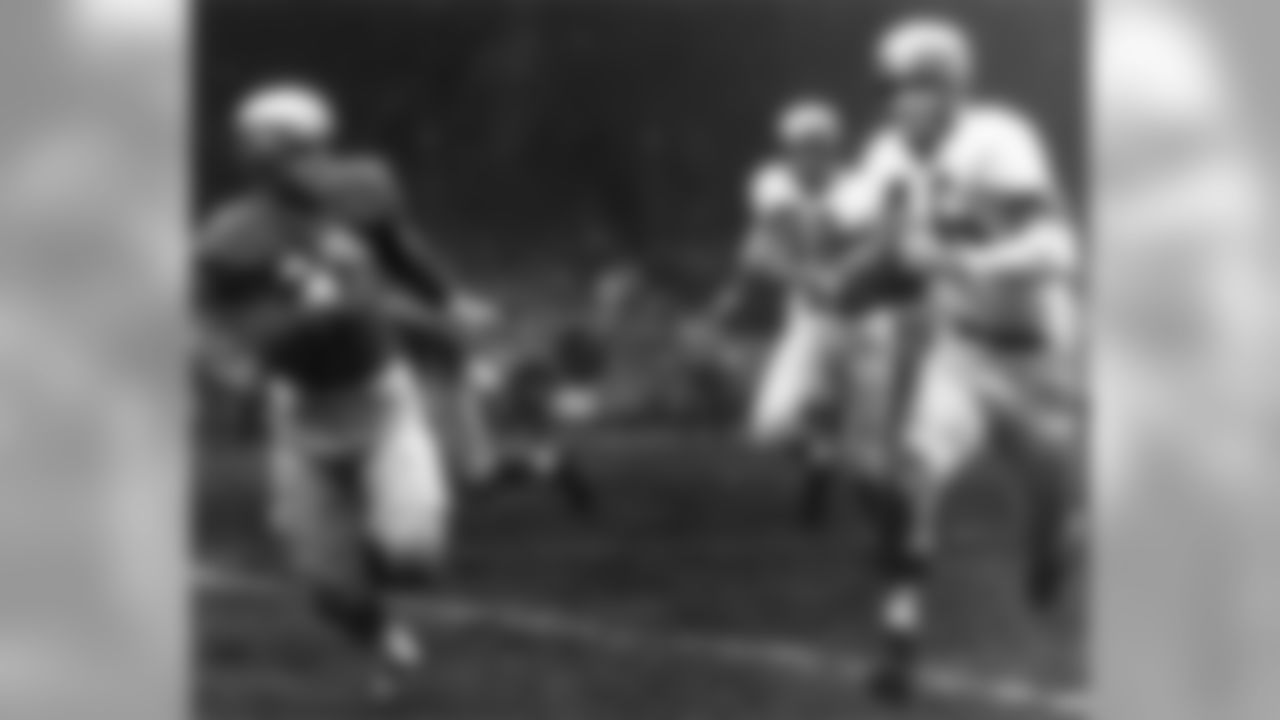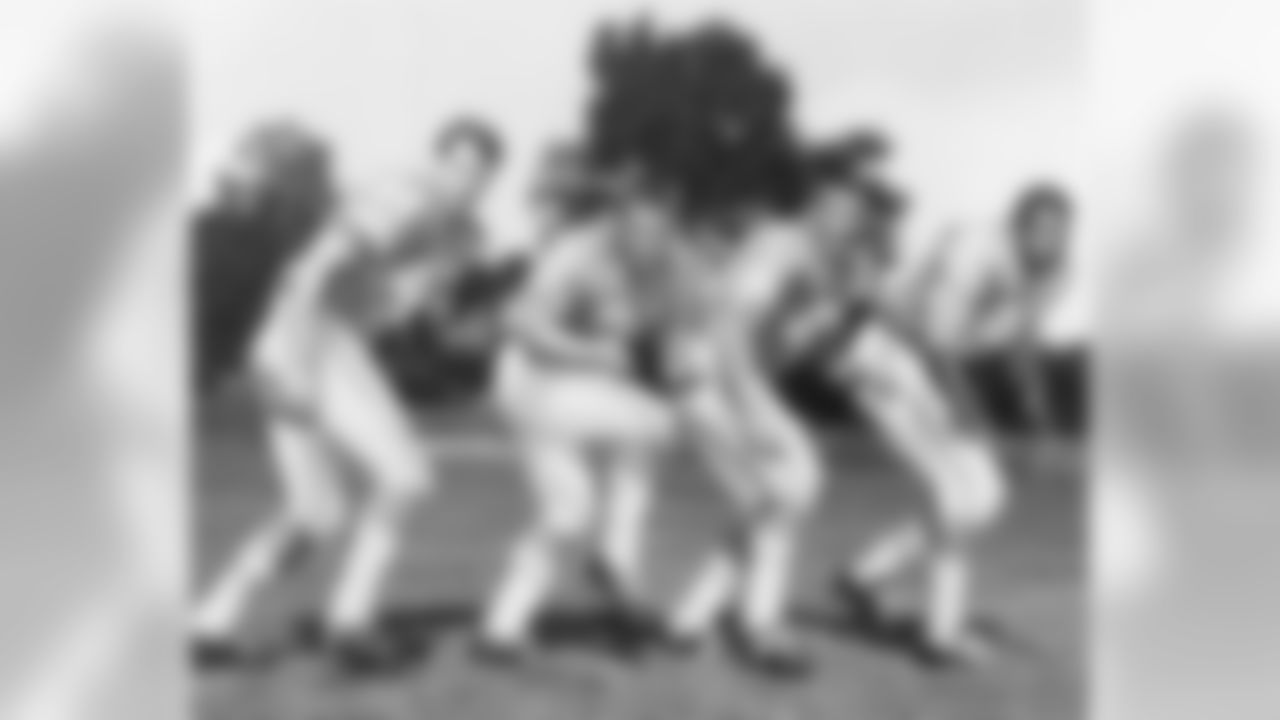Yale Lary crafted a Hall of Fame career for the Detroit Lions at a time when circumstances and style were different from the current era but performance was still what separated the stars from the rest of the players in any era.
Lary was a star defensive back on Lions teams that won three championships in the 1950s. He was a standout safety, punter and return man when smaller roster sizes demanded position versatility, and he gave championship performances on teams that had championship aspirations every year.
Lary, who played all 11 of his Hall of Fame seasons with the Lions in a 13-year span from 1952-64, died Friday at his home in Fort Worth, Texas at the age of 86.
In the galaxy of stars on Lions teams that won three championships in the 1950s and were beaten in a fourth championship game, Lary's star was as bright as any of his teammates.
View photos of Hall-of-Famer Yale Lary's Detroit Lions career.

























Lary made the Pro Bowl nine times. He was All-Pro three times, led the NFL in punting three times and was voted to the NFL's All-Decade team of the 1950s.
Lary was inducted into the Pro Football Hall of Fame in 1979, joining such legendary teammates as Jack Christensen, Dick "Night Train" Lane, Joe Schmidt, Doak Walker, Bobby Layne, John Henry Johnson and Lou Creekmur.
Lary's 50 career interceptions rank 35th all time. He was tied for fifth all time when he retired after the 1964 season.
As a punter, Lary's career average of 44.3 yards per punt ranks 28th on the all-time list – and third among punters whose careers began before 1960.
Lary's career-best average of 48.9 yards per punt in 1963 is 13th on the all-time list and was third at the time of his retirement.
From the start of his career to the end, Lary was a central member of a special group of athletes whose performance and personality made them iconic figures for Detroit's sports fans.
Lary came to the Lions in 1952 as a third-round draft pick out of Texas A&M in what was then a 12-team league.
Lary joined a young secondary that had swagger and ability. Christensen had come to the Lions the previous year as a sixth-round draft pick. The 1952 draft also gave the secondary Jimmy David, one of the hardest hitters in the league whose nickname of "The Hatchet" was well earned in an eight-year career during which he made six Pro Bowls.
The entire unit came to be known as "Chris's Crew," with Christensen the original standout and leader. At the end of his career, Lary played in a secondary known as "The Four L's" and was made up of Gary Lowe, Dick LeBeau, Lane and Lary. Only Lowe did not make the Hall of Fame.
The 1952 season was a good time for a rookie to join the Lions. The team's fortunes were turning upward. It was the year after the late Buddy Parker had taken over as head coach and guided the 1951 team to a 7-4-1 record – the Lions' first winning season in six years.
Lary fit in immediately. The Lions went 9-3 to tie the Los Angeles Rams for first place in what was then the National Conference (later re-named the Western Conference). The Lions beat the Rams in the conference playoff to advance to the NFL title game, where they beat the Cleveland Browns, 17-7, to win the championship.
The Lions repeated as champions in 1953, again beating the Browns, but fell short of a three-peat in 1954 with a loss to the Browns in the championship game.
Lary missed the 1954 and '55 seasons because of military service with the Army during the Korean War.
He resumed his career in 1956 and picked up where he left off – one of the NFL's top punters and safeties. He earned his third championship ring with the 1957 team that made it three championships in six years.
At 5-11 and 185 pounds, Lary was a durable player. He played every game in eight of his 11 seasons and missed only seven regular season games.
As a testament to Lary's ability, he made the Pro Bowl and was first-team All-Pro in 1962 at the age of 32 and a Pro Bowl selection in 1964 in his last year at the age of 34 with six interceptions in a 14-game regular season.













